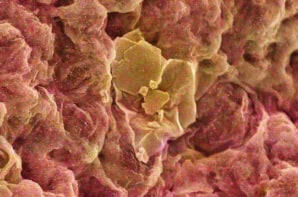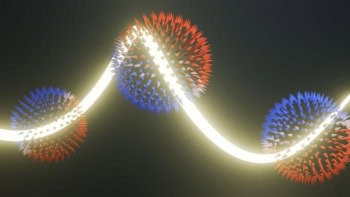Alexander Fleming’s 1928 isolation of penicillin provided a gear change in combatting infectious disease, progressing from folklore preparations of medicinal moulds to the barrage of purified drugs in use today. Yet as bacterial strains evolve a resistance to antibiotics, fatal infectious diseases could once again be on the rise, with microbial infection set to become a bigger killer than cancer by 2050. By clamping down on drug efflux processes in cells and providing alternative bactericidal agents, nanotechnology is showing great promise for fending off this microbial armageddon




